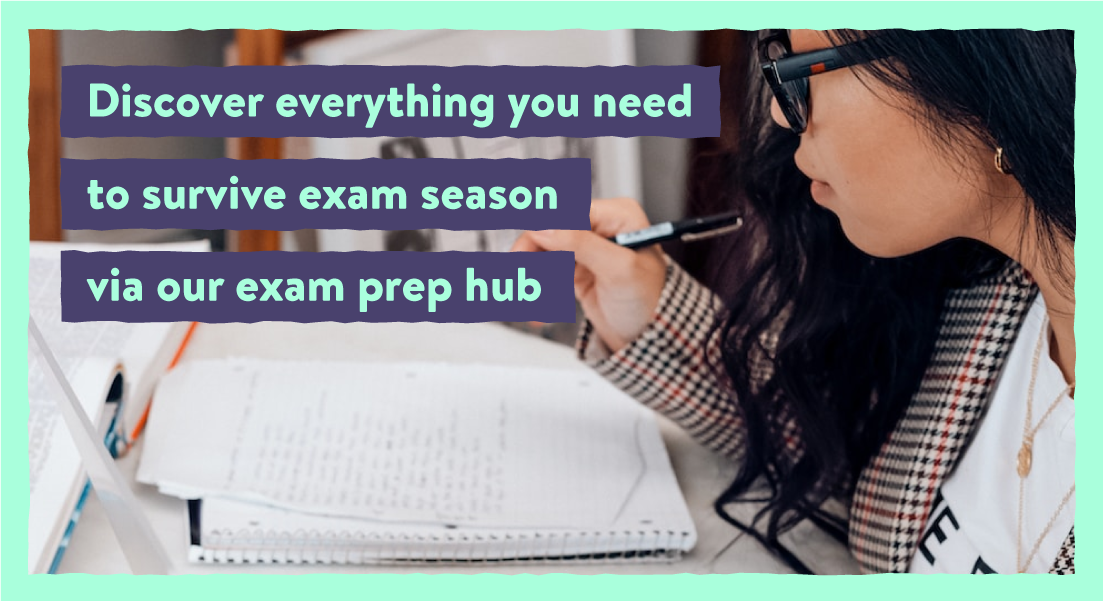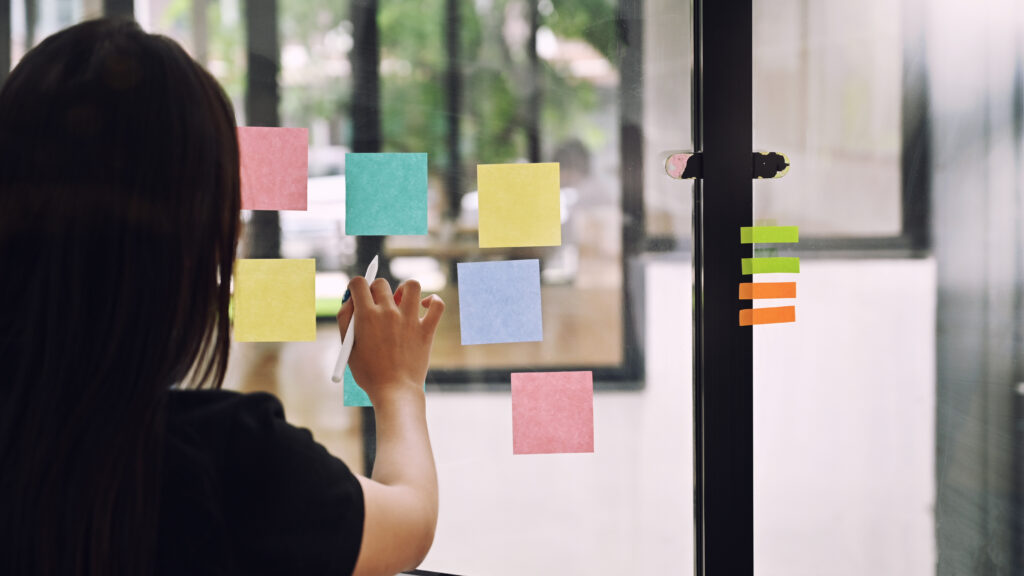We all want good grades, but when it comes to surviving (and thriving) during the exam period, not all strategies are created equal. Under the pressure of the exam period, many students find themselves cramming and missing out on sleep – which doesn’t help their grades at all. With that in mind, here are six study hacks to help get you through the exam period happier, healthier and smarter!
Hack #1. Set yourself a study schedule
There are several ways you can prepare to study and it’s best to start by creating a schedule. Make a list of the exams/assessments you need to study and prepare for. It’s also useful to find out what kind of exam you are sitting (e.g. multiple choice, essay, open book) and how long it is. Then, set yourself a study plan with clear goals.
Block out specific times in your daily and/or weekly calendar to dedicate to each commitment. You can set study reminders on your phone and use online calendars such as those available through Google or Outlook.
If you love writing things down, have a physical diary to help you with your scheduling. It’s also worth making a pact with your friends to either have study sessions together or to save most of your socialisation for after the exam period. View our guide to using Google Drive as a student.
Hack #2. Prioritise your health for maximum productivity
It’s essential to get a good night’s sleep every night. Studies show that just one bad night’s sleep can impair your judgment for several days after.
Nutrition and hydration are also key for optimal brain functioning, so feed your brain well. Ensure you are including lots of fruit, vegetables and water in your diet. Cut back on caffeine; it will keep you up when you need to rest and increase your anxiety levels.
Alongside food, having enough physical activity also helps improve learning ability by reducing cognitive decay. Exercise at least once a day to reduce anxiety and stress, even if it’s just a 15-minute walk in the sunshine. Exercise like this, even in short bursts, can help improve mood and concentration.
When you’re not studying, let yourself relax properly. Practise mindfulness and try to meditate if that’s something that interests you (hint: check out our top 10 mindfulness apps to make this a whole lot easier). If you feel stressed, talk to friends or a counsellor and seek assistance through your education provider or through an external support service.
Read more: Support Services You Might Not be Aware of at University (But Definitely Should be!)
Hack #3. Create the perfect study space
If you plan to study at home, make sure you create an environment that will allow you to study for success. Start with your study desk setup. Get a stand for your laptop to have it at your eye level, a mouse and a keyboard to ensure easy typing. Have a lamp or other light source to avoid straining your eyes when you are studying for an extended period. Avoid clutter and make sure you have everything you need next to you to avoid interruption during your study.
Don’t forget to switch up your study space now and then to boost your productivity. Go to your favourite local study café, visit your education provider’s on-campus library or take your textbooks to a quiet park on a sunny day.
Hack #4. Study smarter, not harder
Using agile study strategies is an awesome way to make the most of your time. Research shows the best way to learn is to study in 30-minute intervals and then take a break. The 30-30 Schedule app (also known as the 30/30 Timer app) is a great tool to use for this. The Pomodoro Technique is also useful, involving 25-minute stretches of focused work sandwiched between five-minute breaks. You can take longer 15 to 30-minute breaks after four consecutive work intervals, which you can set using an online timer.
Another great technique for learning something new is to try teaching it! Explaining something out loud forces your brain to organise information logically. Practise by teaching your friends, your housemates, your dog… anyone who will sit still.
If you can, get your hands on practice tests that you can write in preparation for the real thing. Can’t find any? You and your friends can make them for each other!
Finally, decide if you want to use the academic help and resource centre at your educational institution. There’s no shame in admitting when you need a little extra help, so don’t hesitate to use these services when required.
Tip: Another great way to study smarter not harder is to determine your learning style. Take our quiz to find out what yours is today!
 Hack #5. Be ready on the day
Hack #5. Be ready on the day
Know exactly when and where the exam is and leave home earlier than you think you have to. Pack everything you need (including your student ID, calculator, pens, water, etc.) the night before. Try to wake up earlier and have some breakfast before you head out.
It’s also best to avoid last-minute revision before entering the exam room, as that can build your stress levels and lead to confusion. Instead, have a good night’s rest and a relaxed start to your morning so you feel calm before the exam.
Hack #6. Apply clever exam strategies
When it comes down to the moment of truth, there are a few ways to optimise your exam writing. Firstly, make sure you put your name on the paper! It sounds obvious, but you’d be surprised how easy it is to forget small things like this.
Read all the questions carefully. If you get stuck on a question, move on to something you do know and then go back to it. Keep an eye on the time to ensure you manage it appropriately.
Don’t leave anything unanswered if you can help it. You never know – even if what you write is a complete guess, you might be rewarded with partial marks instead of nothing. Plus, you’ll walk away knowing that you at least tried instead of leaving a question blank.
After the exam…
Congratulate yourself; you did it! Time to relax and think about the holidays.






